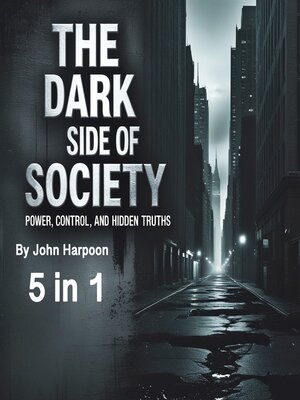
Sign up to save your library
With an OverDrive account, you can save your favorite libraries for at-a-glance information about availability. Find out more about OverDrive accounts.
Find this title in Libby, the library reading app by OverDrive.



Search for a digital library with this title
Title found at these libraries:
| Library Name | Distance |
|---|---|
| Loading... |
This audiobook peels back the layers of our modern world to expose the complex realities in sections:
The People Who Own the World
Explore the concentration of global wealth and power in the hands of a select few. This section examines how financial elites, corporate conglomerates, and influential families have shaped economies, policies, and social structures across generations, often operating beyond public awareness and traditional democratic oversight.
The Most Densely Populated Place on Earth
Journey to extraordinary human settlements where community exists in extreme proximity. From the historical Kowloon Walled City to today's megaslums and urban centers, discover how humans adapt to life in incredibly confined spaces, creating unique social dynamics, economic systems, and cultural practices.
10 Signs of Phony Friendly People
Learn to identify the subtle indicators of inauthentic relationships and manipulative behavior. This section provides practical insights into recognizing individuals who use the appearance of friendliness to conceal ulterior motives, helping you protect yourself from exploitation while building genuine connections.
Why So Many Young People Are Depressed
Examine the alarming rise in depression among younger generations. This section analyzes the confluence of factors—from economic uncertainty and social media pressure to environmental anxiety and changing social structures—that have created unprecedented mental health challenges for today's youth, along with potential paths forward.
Why Stupid People Think They're Smart
Delve into the fascinating psychological phenomenon known as the Dunning-Kruger effect. Understand how cognitive biases lead to overconfidence among the least knowledgeable, while experts often recognize the limitations of their understanding.







